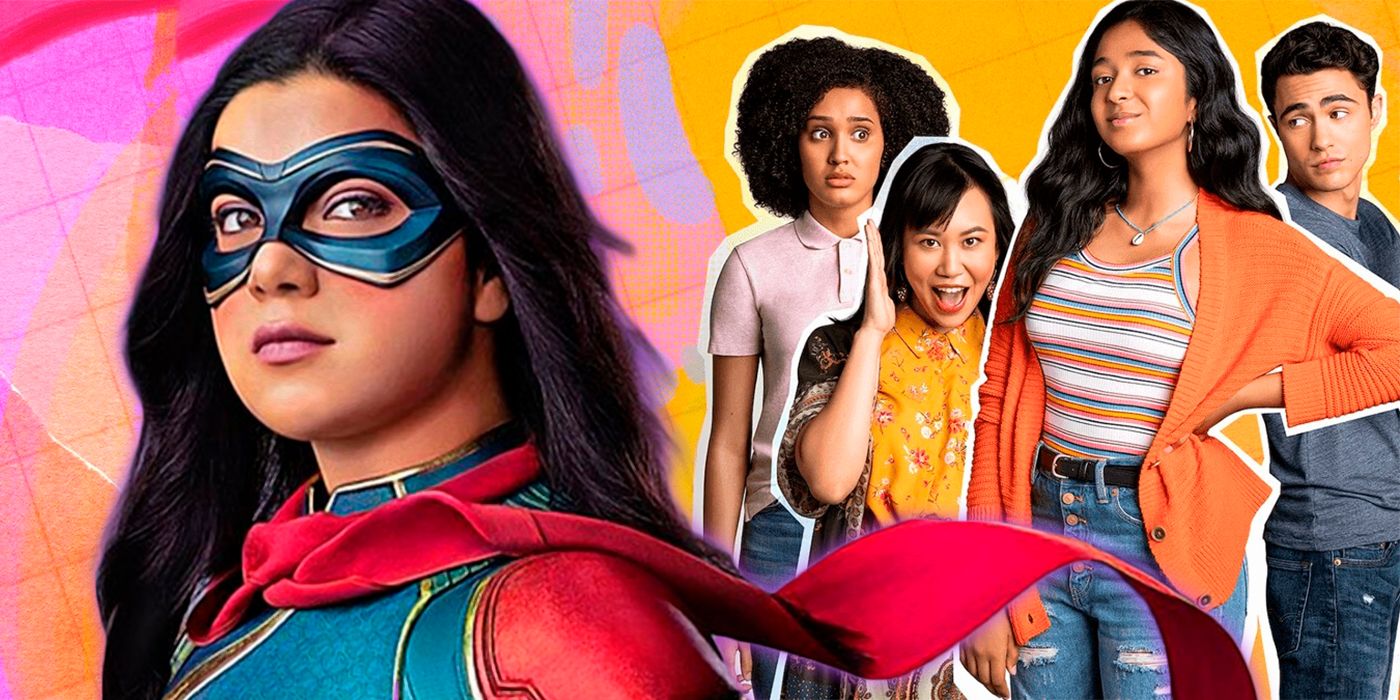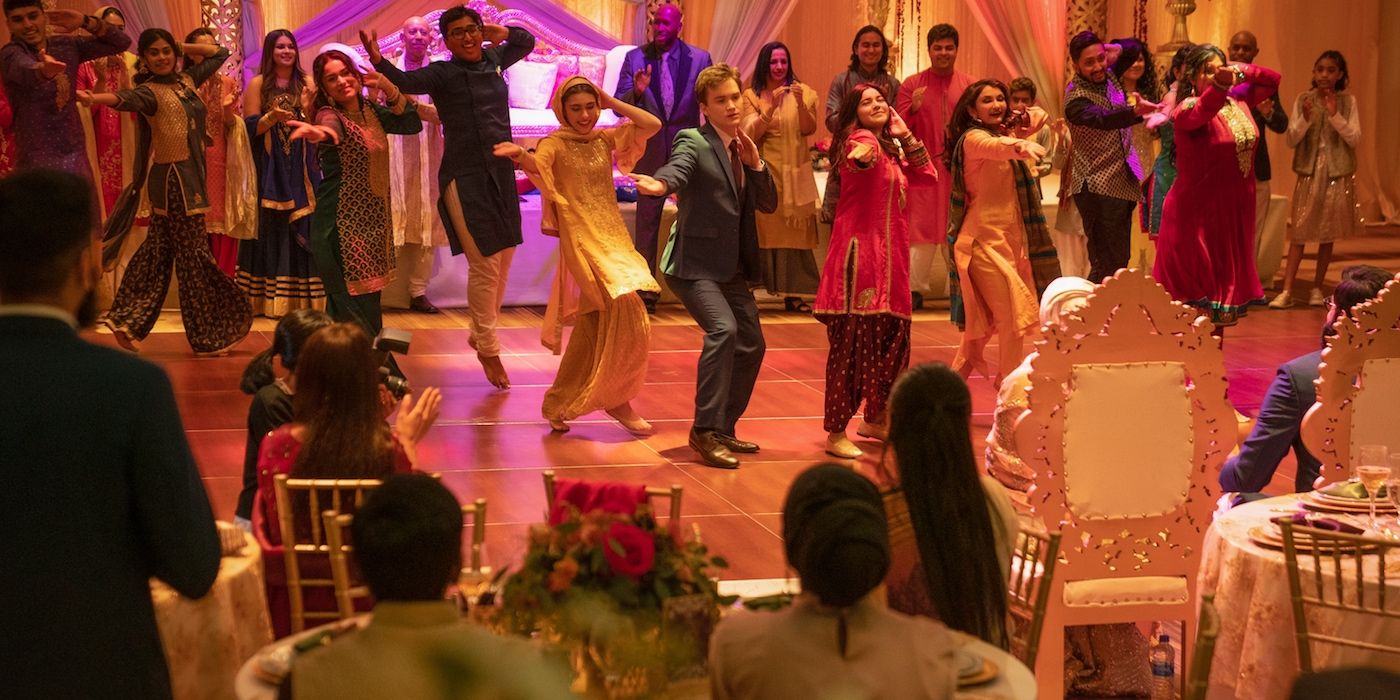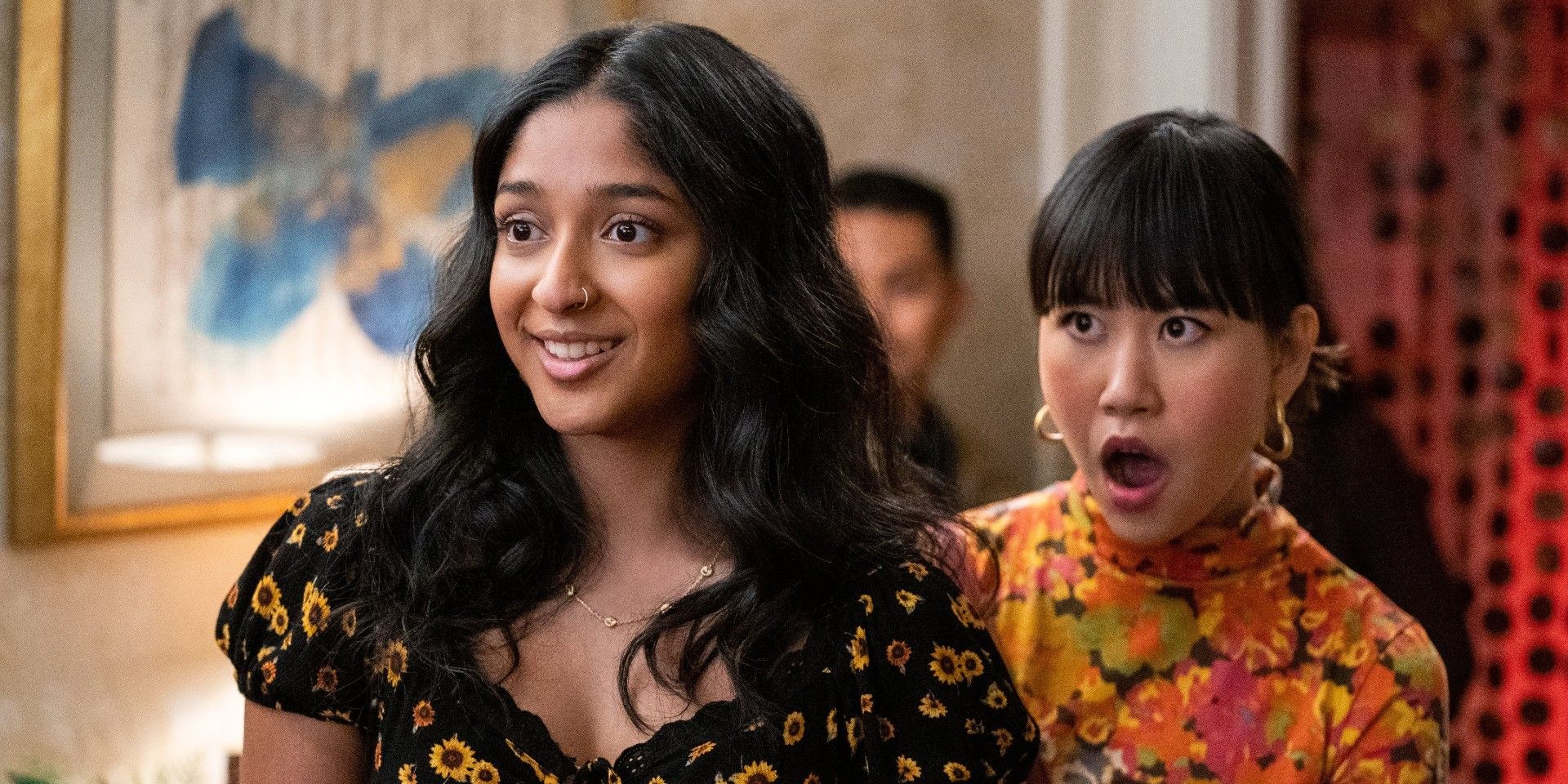The following contains spoilers for Season 3 of Never Have I Ever, currently streaming on Netflix.
One of the most welcoming aspects of the modern streaming wars is how fans are now privy to franchises that embrace the concept of "the other." This has allowed people of color, minorities and marginalized groups to see themselves in shows, increasing diversity after so many decades of the entertainment industry being quite white. Such a direction builds a sense of acceptance and equality, which is why it's no surprise more companies and studios are expanding their narratives to something more worldly, cosmopolitan and relatable.
Two such examples are Disney+'s Ms. Marvel and Netflix's Never Have I Ever; both touching on South Asian culture in an American society where teens are learning about themselves. However, while the former really came off as a tour de force in terms of Pakistan's representation after just one season of Kamala Khan's superhero origin, the latter continued to miss the mark after three seasons regarding Devi's Indian heritage.
Admittedly, Ms. Marvel sets a high benchmark in the way it addressed Muslims at home or at mosque, showcasing religion as an important part of Kamala's family. Their food, garb and so much more were on proper display, not to mention their native language. With Kamala's visit to her granny in Pakistan to learn about her powers upping the ante so much, Ms. Marvel felt like a Pakistan show with an American cast, rather than an American show that incorporated folks from Pakistan.
That's a monumental achievement, adding so much genuine energy and a Bollywood vibrancy at a time when Hollywood does run the occasional infraction of appropriation and tokenization. It's best summed up in Aamir's wedding, with everyone dancing to Bollywood music, which really made the traditions of the Khans a character in and of itself. All these elements helped educate viewers who didn't know about Eid celebrations, Islamic practices or the Partition with India.
Sadly, Never Have I Ever, despite starting its run in 2020, never really connected to the nuance of Devi's people, outside a Ganesh puja in Season 1. Sadly, rather than continue in that vein, it harped on stereotypical jokes, chasing boys that Indian mothers disapprove of, and the overdone trope of gossiping aunties. Sure, Ms. Marvel had these too, but in minor doses, whereas Never Have I Ever kept beating the drum, making these schticks the tenets of Devi's people. It's disappointing because there's so much to touch on in terms of Hinduism, food, garb, Indian traditions and so much more, especially after Devi's mom got her mother-in-law from India. Yet Season 3 didn't integrate this elder and her knowledge into the story well at all. Instead, it turned the auspicious Navaratri into a joke where Devi's teacher, Manish, wrecked the prayer station with the murtis (religious statues), all to push the arc of their granny hating him for being with cousin Kamala.
It's insulting and reductive to use a religious festival for the purpose of a romantic joke, and also to keep pushing the tired trope of grandmothers chiding Indian women not dating doctors, lawyers, engineers or those with "prestigious jobs." It just felt like Never Have I Ever decided to throw everything into one arc, without respecting the other, which is a mistake Ms. Marvel didn't make. Kamala's story went in the opposite direction, still focusing on her crushes, but not neglecting feminism, the evolution of women in the masjid and so on -- mixing both levity and gravity, which all felt organic.
To that point, Never Have I Ever failed to evolve, making Devi's culture the running butt of so many jokes, when a full episode of her experiencing the beautiful Festival of Lights, aka Divali, with her tween crew would have been so wholesome, broadening her horizon while setting an illuminating backdrop for romance and love to blossom. Unfortunately, Devi's story just didn't handle the idea of tradition and legacy well at all, failing to intrinsically work the teen's roots into her formative identity. This gave way to cheesy, non-humorous jokes repeatedly heard with Apu in The Simpsons, or Raj from The Big Bang Theory, while Kamala's journey felt original and refreshing. Ultimately, Kamala's tale opened a whole new world using this budding Avenger from New Jersey, who, for all intents and purposes, still remained just as American and rebellious as Devi, who, no matter what, didn't end up with that same sense of individuality.
Never Have I Ever is available to stream on Netflix. Ms. Marvel is available to stream on Disney+.



